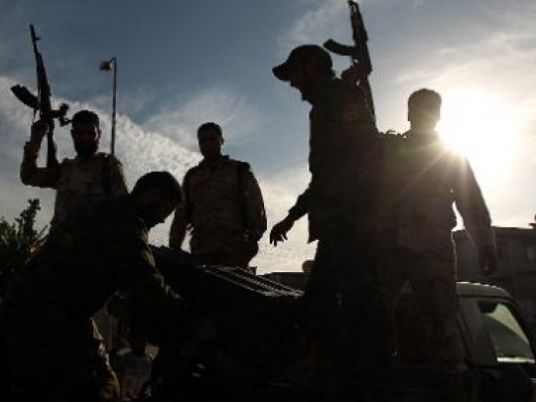
Delegates for Libya's internationally recognized government said on Tuesday it was recalling its team from U.N.-backed peace talks with rivals, complaining about amendments to a draft agreement meant to end their conflict.
It was the latest setback for United Nations efforts to reach a deal by Sept. 20 over the crisis between Libya's official government and a rival, self-declared administration that has taken over the capital Tripoli since fighting last year.
Western powers say the U.N. deal for a unity government is the only solution to the conflict, which has pushed the North African state to the edge of economic collapse four years after the rebellion ousted long-time leader Muammar Gaddafi.
The recognized government and elected parliament working out of the east of the country had agreed to a preliminary accord, while the Tripoli faction had still refused to sign during talks last week in the Moroccan city of Skhirat.
U.N. envoy Bernardino Leon had announced the two sides had reached a consensus and would soon name candidates for a unity government. But delegates for the recognized government and elected House of Representatives (HOR) said on Tuesday they had recalled their team for consultations over proposed amendments.
"The House of Representatives have rejected the amendments that were added to the draft," HOR lawmaker Tarek Juroushi told Reuters. "Additionally, the HOR have summoned the team in Skhirat."
Another HOR lawmaker also confirmed the recall, saying the congress "rejected the amendments added in the last round of talks, but not the draft itself."
However, Leon played down the differences between the two sides and said it was normal to have such debates in the final stages of the talks.
"There is still a lack of trust…I think the closer we are to the possibility of a final agreement, the more we will see tough positions," he told reporters late on Tuesday in the Moroccan costal town of Skhirat.
Leon added that the internationally recognized parliament negotiating team is not leaving the talks despite the recall from Libya.
"I think they will be back tomorrow or the day after tomorrow and they will continue the discussions."
Negotiators from both sides are under pressure from hardliners who see they can still win ground from conflict. Armed forces on both sides are loose alliances of former anti-Gaddafi rebels who turned against each other or whose loyalties are more to tribal or regional allegiances.
Libya's turmoil is an increasing worry for European leaders as Islamic State militants gain ground there and smugglers take advantage of the chaos to send thousands of illegal migrants and asylum seekers across the Mediterranean to Europe.
(Reporting by Ayman Al-Warfalli and Aziz El Yaakoubi; writing by Patrick Markey; Editing by Dominic Evans and Ken Wills)
